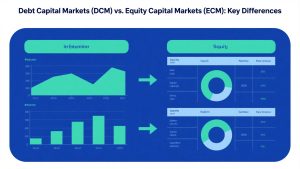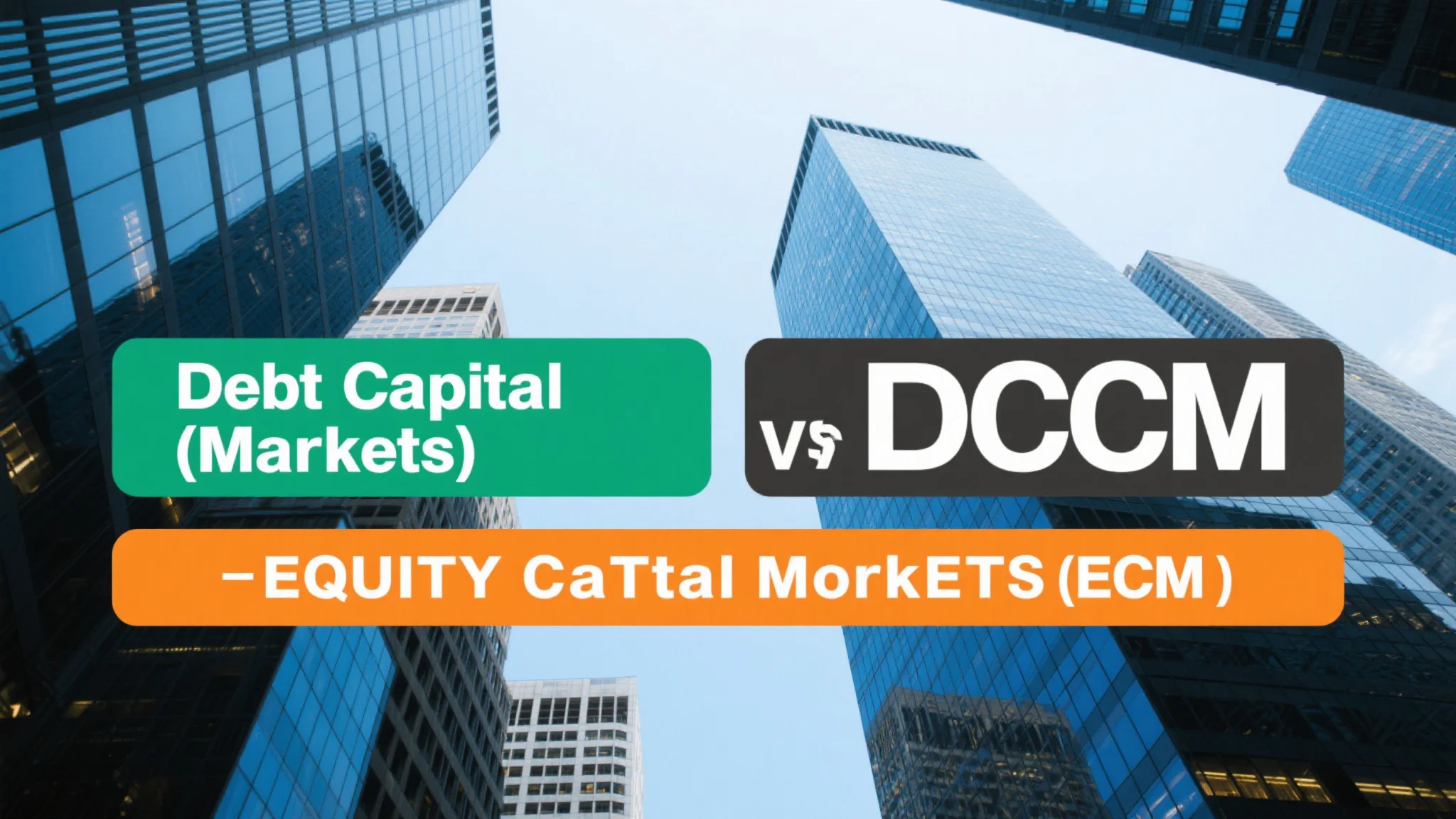Fundamental Differences Between Debt and Equity Capital Markets
The worlds of DCM investment banking and ECM roles operate as parallel universes within financial institutions, each with distinct products, processes, and participant profiles. Debt capital markets focus on helping organizations raise financing through bonds, loans, and other fixed income instruments, while equity capital markets facilitate stock offerings and equity-linked products. Professionals in DCM teams spend their days structuring debt instruments to meet issuer needs and investor appetites, carefully balancing coupon rates, maturities, and covenants. Meanwhile, their counterparts in ECM divisions work on IPOs, follow-on offerings, and convertible securities, with greater emphasis on valuation storytelling and equity investor targeting. These fundamental differences extend to deal timelines, with DCM transactions often executing in days or weeks, while ECM deals may take months from launch to pricing.
Day-to-Day Responsibilities in DCM vs. ECM
The daily grind for analysts and associates varies significantly between DCM investment banking and ECM roles, reflecting their different market dynamics. DCM professionals spend substantial time updating bond market comparables, preparing pitch books on financing alternatives, and coordinating with syndicate desks on investor feedback. Their work requires deep understanding of credit metrics, yield curves, and liability management strategies. ECM bankers, by contrast, focus more on equity valuation, investor targeting, and roadshow preparation – skills that align with the career paths of those interested in corporate valuation and investor relations. Both roles demand long hours, but the nature of the work differs: DCM involves more recurrent financing transactions for existing clients, while ECM deals tend to be more episodic but higher profile when they occur.
Skill Sets and Personality Profiles for Success
Excelling in DCM investment banking versus ECM roles requires different cognitive strengths and interpersonal skills. DCM professionals benefit from quantitative prowess in fixed income mathematics and structured finance, along with the ability to explain complex debt terms to corporate treasurers. The best DCM bankers combine this technical depth with relationship skills to maintain recurring business with frequent issuers. ECM practitioners need stronger equity valuation skills and the ability to craft compelling equity stories, making this role better suited for those interested in corporate narratives and investor psychology. Both paths require attention to detail under pressure, but ECM demands more creativity in positioning companies to public market investors, while DCM rewards precision in structuring and pricing debt instruments.

Career Trajectories and Exit Opportunities
The long-term career paths stemming from DCM investment banking and ECM roles diverge meaningfully after the junior banker years. DCM professionals often progress to become debt capital markets specialists, moving into corporate treasury roles, fixed income sales & trading, or credit investing. Some transition to liability management advisory or restructuring work. ECM bankers frequently evolve into equity capital markets experts, with natural transitions to investor relations, equity research, or public company CFO tracks. Both paths can lead to senior capital markets roles at corporations or investor relations positions, though ECM experience tends to provide better preparation for private equity and hedge fund careers due to its greater focus on equity valuation and capital structure optimization.
Market Conditions and Deal Flow Variability
The cyclicality of DCM investment banking versus ECM roles creates different professional experiences across market environments. DCM benefits from relatively steady deal flow as companies require ongoing debt financing for operations and maturing obligations, though activity fluctuates with interest rate cycles. ECM deal volume proves far more volatile, with IPO windows opening and closing abruptly based on equity market performance. This dynamic makes ECM careers more boom-and-bust, while DCM offers greater consistency. During periods of market stress, DCM bankers often work on liability management exercises and distressed refinancings, while ECM teams may shift focus to block trades and accelerated bookbuilds rather than traditional IPOs. Understanding these patterns helps professionals choose the path that aligns with their risk tolerance and career timing preferences.
Compensation Structures and Performance Metrics
Remuneration in DCM investment banking and ECM roles follows different logics reflecting their distinct business models. DCM compensation tends to be more stable year-to-year, with bonuses tied to overall debt issuance volumes and relationship continuity. ECM pay proves more variable, with larger bonuses in active IPO years but sharper declines during market downturns. Both groups earn less than M&A bankers but enjoy better work-life balance. The career advancement metrics also differ: DCM bankers are judged on repeat business and execution efficiency, while ECM professionals are evaluated on deal innovation and investor feedback. These differences attract different personalities – those seeking steady progression often prefer DCM, while ECM appeals to professionals comfortable with higher variance outcomes in exchange for potentially greater upside during hot markets.






